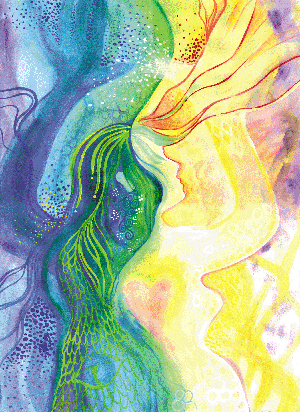"Worship the Lord in the beauty of holiness." - Psalm 96
I've found myself, as of late, quite taken by the writings of Robert Barron. My friend, Rusty, is the one who told me I should read his book,
The Priority of Christ. Since I was leaving for Pasadena I decided I would wait to see if they had a copy of it in Archives, one of the best theological bookstores in the world, by the way. They didn't have it, but they did have a copy of a book of his called
The Strangest Way: Walking the Christian Path. I'm only about fifty pages in but I am soaking it up deeply.
For Barron, ours is "a God who comes after us with a reckless abandon, breaking open his own heart in love in order to include us in the rhythm of his own life. Christianity, I saw, was not our disciplined quest for God, but God's relentless quest for us - even to the point of death. God dies in order that we might be his friends" (11). Or as Brennan Manning might say: God is ridiculously in love with you (my paraphrase).
The point, though, is the part about becoming attune to the rhythm of God's own life. If Christianity is a game, then the point is that we play. Apprenticeship is the mode of existence for Christians (17). "Come and see," Jesus tells the disciples (John 1:39). Catch my drift. Align to the path. Find the beat.
But how does all that begin? This has been my question for a while, especially as I try to process what it means for me as a person born and raised a follower of Jesus. What compels me to keep going when logic and arguments for faith, as good as they, can't sustain me? Or when the church is so morally impotent that she has no value? The only compulsion is the first compulsion: the reckless abandon of God's love. In a word, the only thing that really compels me is beauty.
How does all of this begin? Because God is so damn beautiful. At first we are compelled and intrigued to follow Jesus simply because we cannot take our eyes off of Him. Whether it was the first Christians who saw Jesus with their own eyes, or the people through whom we first saw Jesus as a baby, or a kid, or a teenager, or an adult. Or maybe even it wasn't anyone we ever met face to face, but a story about some person who lived fifty, one hundred, or one thousand years ago, that so intrigued, so compelled us that it captured our attention long enough for the love of God through Christ to shine through. It is the beauty of Christ that compels us. Something about the love of God in Christ, where people can't help but be healed, where injustice can't help but be exposed, where forgiveness and reconciliation can't help but happen, where anger subsides, where jealousy dies, where we truly see one another as distinct and unique expressions of God, where war doesn't make sense, where poverty is impossible. Where at the end of the day, when the dark night (my constant companion) settles in, I hope and pray in light of the resurrection of Jesus that one day everything will be put to rights, that God will make good on His promises.
To fall in love with God is the first order. After that everything else finds its proper place. "Once the beauty of Christianity has seized a devotee, she will long to submit herself to it, entering into its rhythms, its institutions, its history, its drama, its visions and activities. And then, having
practiced it, having worked it into her soul and flesh, she will know it" (30). Did you catch that? Knowledge comes through practicing faith. It comes on the way. The moral perfection of the church is not enough, obviously. The systemic rendering of our faith is not enough. Ethics and truth happen in faith, but the question is how we get to faith. Come and see, he says. And we come because of beauty. "The movement, in short, is from the beautiful (it is splendid!) to the good (I must play it!) to the true (it is right!)" (30). From beauty to goodness to truth. There is, to be sure, ethics and truth to consider, but not on their own. They are not the first order of business. It's frustrating sometimes to remember that God never tells us what do to, he only shows us what He did. And what He did is first and foremost something beautiful.
Because it is beautiful, I must play it. And now that I have played, I see that it is true. You cannot convince people of God's love. And for the love of God, you must stop trying to convince people that they are sinners. The best thing you can do is to love God yourself. If you are so compelled, so intrigued, so captivated by the beauty of the God's love, then you will reflect that out into the world accidentally. Even our best laid plans will merely be expressions, or accidents of our love for God. Our expressions of God's love to others will not be the thing that gets us out of bed in the morning. It will be an actual love of God that will exist long after God brings about the New Creation.



















